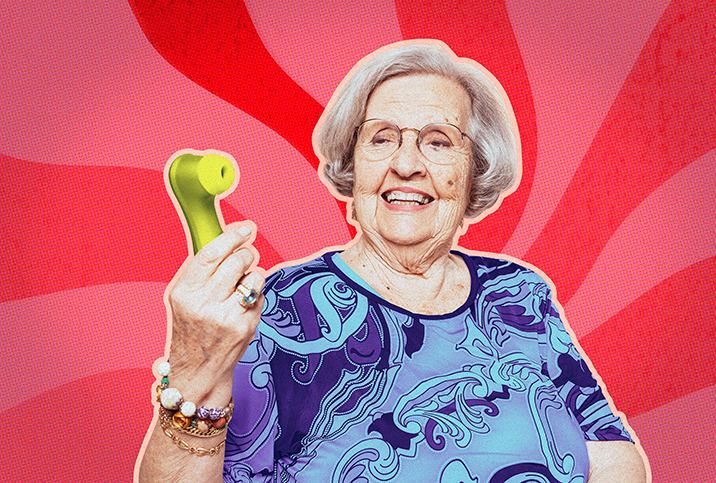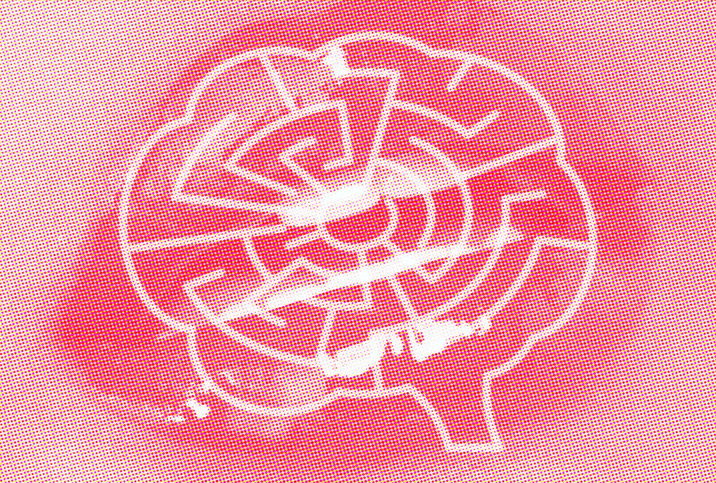The Life-Extending Power of Sex

When people talk about full, healthy life spans, they speak to living longer and their subjective well-being. For many people, sexual partnerships are an integral part of their well-being whether they're in their 20s or their 80s.
But does having more sexual intimacy, including experiencing orgasms, add years to a person's life?
Researchers and psychologists agree the answer is more complex than yes or no.
The longevity study
"We have spent the past three decades tracking down and developing further information on over 1,500 American men and women who were followed since they were children in [1921]," said Howard S. Friedman, Ph.D., distinguished professor of the graduate division in psychology at the University of California, Riverside, and one of the authors of "The Longevity Project: Surprising Discoveries for Health and Long Life from the Landmark Eight-Decade Study," which summarizes his 30-year scientific study of pathways to health and longevity.
"In 1940, the participants and their spouses reported details about their marital happiness," Friedman continued. "The 1940 evaluation included questions about their sexual satisfaction and the women's frequency of orgasm during sex. For example, they were asked, 'How well mated are you from the strictly sexual point of view?' And the women reported the frequency of orgasm during intercourse on a [four]-point scale from 'never' to 'always.' When we looked directly at health and longevity decades later, we found that women who had a higher frequency of achieving orgasm during intercourse tended to live longer than their less-fulfilled peers."
He acknowledged there isn't a wealth of information regarding the topic, because it's difficult to maintain controlled long-term studies and there are misgivings of a government-funded research agency to study orgasms and health.
In terms of the overall health of individuals later in life, Friedman said: "It turned out that the husband's marital happiness mattered a lot; more than the wife's marital happiness. It was key to predicting health and well-being decades later, whether we were predicting the health of men or women."
However, Friedman cautioned not to misinterpret the findings between longevity and happiness.
"In many studies, including our own, subjective well-being and good health often go hand in hand. They're highly correlated. This is often misinterpreted. This does not mean happiness or satisfaction is a primary direct cause of good health. It is the underlying patterns that put one on the path to being both happier and healthier," he explained, adding that "sexual satisfaction tends to play a role in a happier marriage, and happier marriages play a role in greater sexual satisfaction; a reciprocal relationship. And we know that people in stable, fulfilling marriages tend to be much healthier than those with dysfunctional relationships. However, we found, and other studies also find, that many continuously single individuals are happy and healthy, as well."
Sex still matters in our 70s and beyond
"The definition of sexual activity is sometimes cuddling, stroking, nonintercourse kinds of activities, giving each other skin pleasure or orgasm or whatever," said Marian E. Dunn, Ph.D., L.C.S.W., a clinical social worker and therapist practicing in Garrison, New York.
Dunn has been in practice for 40 years, counseling people to enhance their relationships and sexuality. Dunn, who recently turned 85, lives in a continuing care retirement community but continues to see patients via Zoom. Living in a community where she calls herself a "spring chicken" gives her new insight into what contributes to longer and happier lives.
"My friends here, my close friends, one is 103, one is 98, several are 95…are absolutely charming," she said. "There is a 103-year-old man…[who] lost his wife a couple of years ago, but they had a healthy sex life until her passing."
Dunn remarked that sexual intimacy makes for more connected people.
"I think most people here who are not in couples would admit that they miss skin touch," she said. "You know, the lack of skin touch is awful, and COVID-19, of course, has increased that considerably because people are even more afraid to touch each other."
Our older sexual selves
Dunn echoed Friedman's disappointment at the lack of research in sexual fulfillment and longevity studies. But she also spoke about the age bias of studies.
"We don't have studies because studies stop at 70," she said. "As if people stopped [living beyond] 70. If only they could see all the people around here who are older and in good shape."
Unlike past expectations of individuals and society, Dunn said this generation of seniors is not going to "run out of steam." Americans are living longer and in better shape, and are not giving up on sexual satisfaction, she said.
There are also old expectations that older sexually active people may need to reconsider.
"For men, clinically, I have found that their ability to get and keep an erection is central to their sense of self-esteem," Dunn explained. "So much is based on erectile capacity, and that's so unfortunate. Men tend to give up sexually when they start having trouble with erections. They don't often think of the whole rest of the stuff that could be pleasurable with their partners. Also, women may interpret the fact that he's not getting an erection anymore as a sign that 'he's not interested in me, I'm not attractive'...This is a generation that tends to be shy and conservative. They want to know things so they can help their grandchildren, but they are afraid to talk themselves."
Last year, Dunn gave a seminar on "Sexuality Across the Life Span" at her retirement community. The conservative-minded education committee was a little nervous about the subject matter beforehand, but the seminar had the highest attendance of any talk given to the community.
"It was on Zoom using a PowerPoint presentation," Dunn said. "Several women came up to me [the following day] and said, 'Thank you so much for that talk. My husband gave me so many nice kisses this morning.'"
Longevity and overall well-being
Personality traits and productivity may be factors linking health and happiness.
"I find that it is better to think in terms of patterns and not endless lists of things to do and not to do," Friedman said. "Overall, the truth of the matter is that the same deeper patterns of a meaningful, productive life that make you healthier also make you happier.
"Studies suggest that a society with more conscientious, persistent and goal-oriented citizens, with healthy friends who are well-integrated into their communities, is likely to be a society of better health, more happiness and long life," he added.
Dunn said she planned to recite two Judith Viorst poems at her retirement community talent show. The funny and insightful verses, from the collection "Unexpectedly Eighty: And Other Adaptations," spoke about sex, desire and the realities of aging against the nostalgia of youth.
"When I'm with my partner, and I'm not with my partner often now because we live so far apart, it does make me feel much better about myself and my well-being," Dunn reflected. "And with that missing, well, that may be just who I am, but I don't feel as vital."
Being connected is a potential key to living a more content and longer life, whether the connection is within the community, with family and friends, or with intimate sexual partners.


















